
hidden
Over 10 years experience of Traceability Solutions
By Pharmatrax Author
Category: Technoloy
 No Comments
No Comments
How Using Blockchain in Healthcare Is Reviving the Industry’s Capabilities
he U.S. is poised to spend 20% of its GDP on healthcare in the near future. If that stat wasn’t jarring enough, consider the industry continues to be plagued by skyrocketing hospital costs, inefficient practices and constant data breaches. These (very expensive) problems are spurring a drive for greater efficiency and innovation.
With its ability to deflate the current spending bubble, protect patient data and improve overall experience, using blockchain in healthcare may help ease the pain. The technology is already being used to do everything from securely encrypt patient data to manage the outbreak of harmful diseases. And at least one country is big on the potential of blockchain healthcare: Estonia.
BLOCKCHAIN HEALTHCARE APPLICATIONS
The size of Tennessee with the population of Maine, Estonia began using blockchain technology in 2012 to secure healthcare data and process transactions. Now all of the country’s healthcare billing is handled on a blockchain, 95% of health information is ledger-based and 99% of all prescription information is digital.
So goes Estonia, so goes the world? Probably not, but these 19 examples of blockchain in healthcare are food for thought.
BLOCKCHAIN HEALTHCARE COMPANIES TO KNOW
- Akiri
- BurstIQ
- Factom
- MedicalChain
- ProCredEx
- Avaneer
- SimplyVital Health
- RoboMed
- Embleema
- Chronicled

Securing Patient Data
Keeping our important medical data safe and secure is the most popular blockchain healthcare application at the moment, which isn’t surprising. Security is a major issue in the healthcare industry. Between 2009 and 2017, more than 176 million patient records were exposed in data breaches. The perpetrators stole credit card and banking information, as well as health and genomic testing records.
Blockchain’s ability to keep an incorruptible, decentralized and transparent log of all patient data makes it a technology rife for security applications. Additionally, while blockchain is transparent it is also private, concealing the identity of any individual with complex and secure codes that can protect the sensitivity of medical data. The decentralized nature of the technology also allows patients, doctors and healthcare providers to share the same information quickly and safely.
Check out how these five companies are applying blockchain to healthcare security.
Blockchain application: Akiri operates a network-as-a-service optimized specifically for the healthcare industry, helping protect patient health data when transporting it. The Akiri system does not store data of any kind, it operates as both a network and a protocol to set policies and configure data layers while verifying the sources and destinations of data in real time.
Real-life impact: Akiri ensures that healthcare data remains secured and shareable with only the parties authorized for access at the moments when they need it.
What they do: BurstIQ’s platform helps healthcare companies safely and securely manage massive amounts of patient data. Its blockchain technology enables the safekeeping, sale, sharing or license of data while maintaining strict compliance with HIPAA rules.
Blockchain application: The company uses blockchain to improve the way medical data is shared and used.
Real-life impact: Because BurstIQ’s platform includes complete and up-to-date information about patients’ health and healthcare activity, it could help to root out abuse of opioids or other prescription drugs.
What they do: Factom creates products that help the healthcare industry securely store digital records on the company’s blockchain platform that’s accessible only by hospitals and healthcare administrators. Physical papers can be equipped with special Factom security chips that hold information about a patient and stored as private data that is accessible only by authorized people.
Blockchain application: Factom employs blockchain technology to securely store digital health records.
Real-life impact: In June of 2018, Factom got a grant of nearly $200,000 from the U.S. Department of Homeland Security to beta-test a platform aimed at integrating secure data from Border Patrol cameras and sensors in order to better understand the impacts of blockchain in “a realistic field environment.”
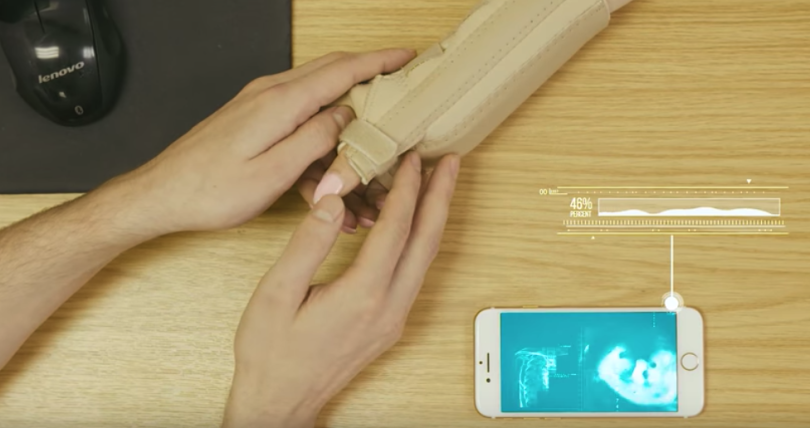
MEDICALCHAIN
Industry: Electronic Health Record, Medical
Location: London, England
What they do: Medicalchain’s blockchain maintains the integrity of health records while establishing a single point of truth. Doctors, hospitals and laboratories can all request patient information that has a record of origin and protects the patient’s identity from outside sources.
Blockchain application: Medicalchain’s blockchain-based platform maintains a record of origin and protects patient identity.
Real-life impact: In May of 2018, Medicalchain announced the release of MyClinic.com. A telemedicine platform, MyClinic enables patients to consult with their doctors via video and pay for those consultations with “MedTokens.”

GUARDTIME
Industry: Cybersecurity, Blockchain
Location: Irvine, California
What they do: Guardtime is helping healthcare companies and governments implement blockchain into their cybersecurity methods. The company was vital in helping implement blockchain in Estonia’s healthcare systems, and it recently signed a deal with a private healthcare provider in the United Arab Emirates to bring blockchain to its data privacy systems.
Blockchain application: Guardtime employs blockchain for cybersecurity applications, including healthcare.
Real-life impact: Guardtime recently teamed with Verizon Enterprise Solutions to deploy several platform services based on Guardtime’s Keyless Signature Infrastructure (KSI) Blockchain.

Blockchain Medical Records Can Streamline Care and Prevent Costly Mistakes
Miscommunication between medical professionals costs the healthcare industry a staggering $11 billion a year. The time consuming process of obtaining access to a patient’s medical records exhausts staff resources and delays patient care. Blockchain-based medical records offers a cure for these ills.
The decentralized nature of the technology creates one ecosystem of patient data that can be quickly and efficiently referenced by doctors, hospitals, pharmacists and anyone else involved in treatment. In this way, the blockchain can lead to faster diagnoses and personalized care plans.
These six companies are embracing the concept of blockchain medical records to create shared databases and personalized health plans.
Blockchain application: ProCredEx has created a distributed ledger of healthcare credentials data that boosts complex dataset efficiency by rendering the data immutable and permanently traceable, allowing data to be curated to meet unique organizational requirements and shared with authorized partners.
Real-life impact: The platform uses proprietary validation engines and restricts memberships to only vetted and approved organizations so health systems can rapidly acquire verified credentials and promote patient safety and care quality.
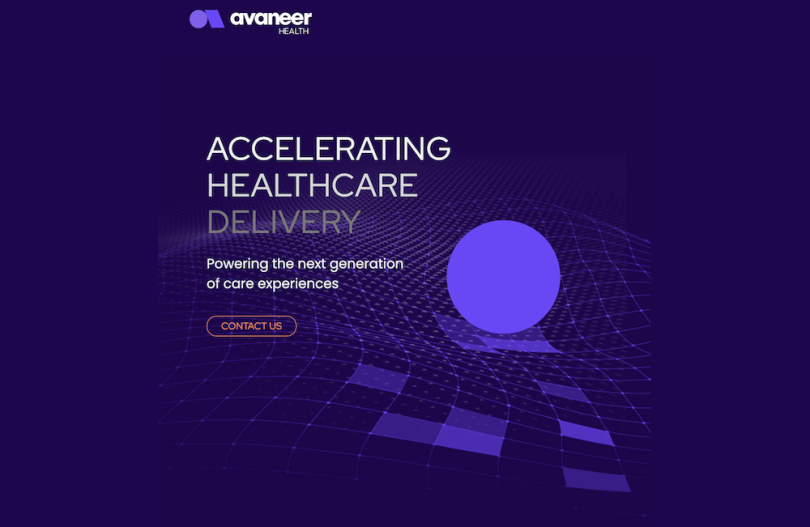

Industry: Big data
Blockchain application: Avaneer is a new company backed by Aetna, Anthem and Cleveland Clinic that is dedicated to using blockchain technology to improve healthcare efficiency, utilizing a public ledger to support better claims processing, secure healthcare data exchanges and keep provider directories maintained and up-to-date.
Real-life impact: The Avaneer network takes a forward-looking approach to keeping healthcare data secure and readily available to authorized care providers.
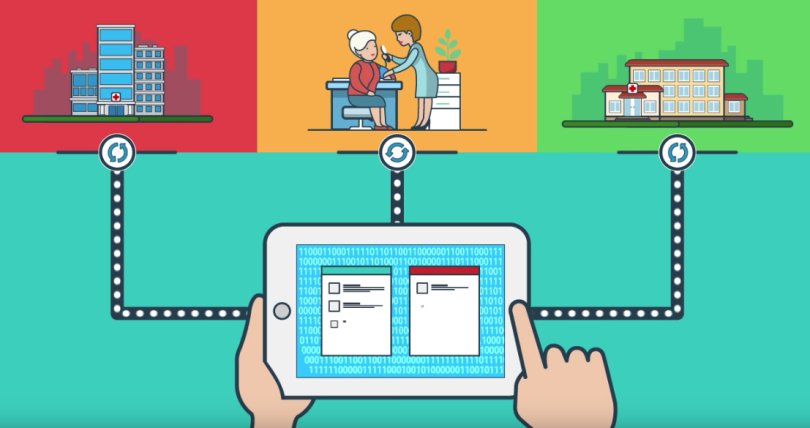
SIMPLYVITAL HEALTH
Industry: AI, Blockchain, Enterprise Software, Personal Health
Location: Watertown, Massachusetts
What they do: SimplyVital Health is making its decentralized technology available to the healthcare industry. It’s Nexus Health platform is an open source database that allows healthcare providers, on a patient’s blockchain, to access pertinent information. Open access to important medical information helps healthcare professionals coordinate medical efforts more quickly than traditional methods.
Blockchain application: SimplyVital uses blockchain to create an open source database so healthcare providers can access patient information and coordinate care.
Real-life impact: SimplyVital recently partnered with genemics and precision medicine company Shivom to form a Global Healthcare Blockchain Alliance that employs blockchain security to protect DNA sequencing data.
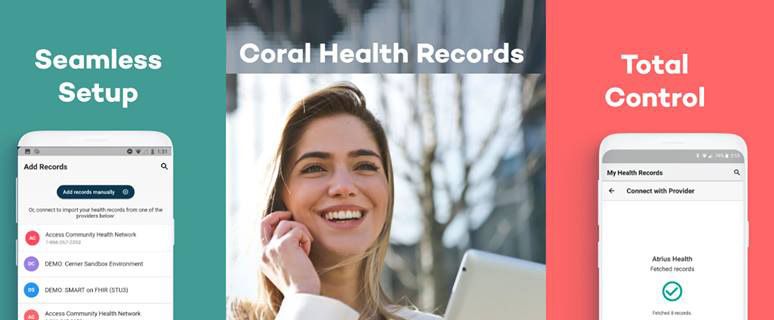
CORAL HEALTH RESEARCH & DISCOVERY
Industry: Healthcare, IT
Location: Vancouver, Canada
What they do: Coral Health uses blockchain to accelerate the care process, automate administrative processes and improve health outcomes. By inserting patient information into distributed ledger technology, the company connects doctors, scientists, lab technicians and public health authorities quicker than ever. Coral Health also implements smart contracts between patients and healthcare professionals to ensure data and treatments are accurate.
Blockchain application: Coral’s blockchain technology accelerates care, automates administrative processes and employs smart contracts between patients and doctors.
Real-life impact: According to Coral’s chief strategy officer Jeremy Mullin, the company is looking into the possibility of using a blockchain and the Smart on FHIR protocol “to let patients track their own health files.”
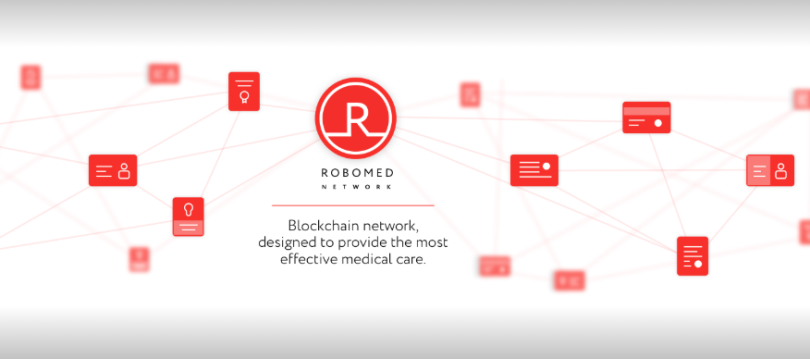
ROBOMED
Industry: Blockchain, Medicine
Location: Moscow, Russia
What they do: Robomed combines AI and blockchain to offer patients a single point of care. The company deploys chatbots, wearable diagnostic tools and telemedicine sessions to gather patient information and share it with the patient’s medical team. Robomeds Panacea platform engages patients into smart contracts that incentivize and lead them down the path to better health.
Blockchain application: Robomed uses blockchain to securely gather patient information and share it with a patient’s healthcare providers.
Real-life impact: The Taipei Medical University Hospital recently implemented blockchain technology, including Robomed’s network, to more securely store and share medical records.
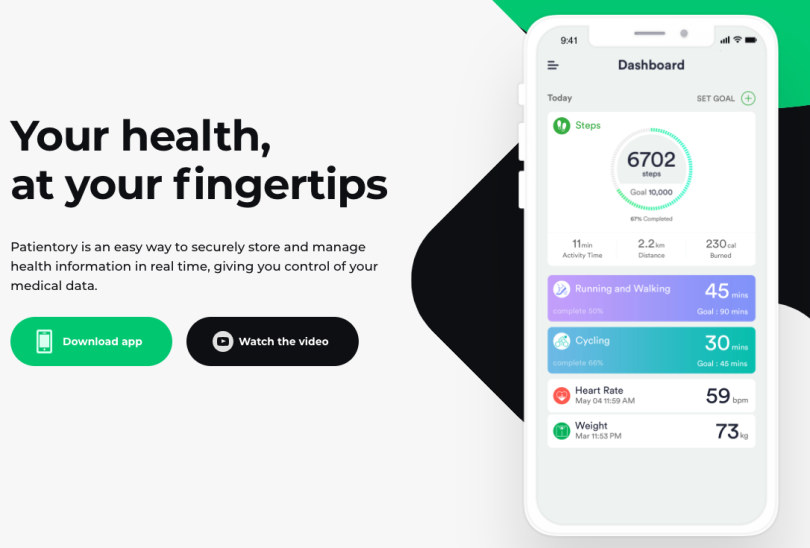
PATIENTORY
Industry: Blockchain, Cybersecurity, Healthcare, IT
Location: Atlanta, Georgia
What they do: Patientory’s end-to-end encryption ensures that patient data is shared safely and efficiently. The company’s platform enables patients, healthcare providers and clinicians to access, store and transfer all important information via blockchain. Patientory helps the healthcare industry to move more quickly by housing all patient information under one roof.
Blockchain application: Patientory’s blockchain platform enables the secure storage and transfer of important medical information.
Real-life impact: Patientory recently hosted its first North American Blockchain in Healthcare Summit that gathered hundreds of healthcare professionals to discuss and learn about blockchain-based healthcare applications.

Medical Supply Chain Management and Drug Traceability/Safety
How much do we really know about our medicine? Can we be sure it hasn’t been tampered with? Is it coming from a legitimate supplier? These questions are the primary concerns of the medical supply chain, or the link between the lab and the marketplace.
Blockchain has serious implications for pharmaceutical supply chain management, and its decentralization virtually guarantees full transparency in the shipping process. Once a ledger for a drug is created, it will mark the point of origin (ie. a laboratory). The ledger will then continue to record data every step of the way, including who handled it and where it has been, until it reaches the consumer. The process can even monitor labor costs and waste emissions.
Here are five companies using blockchain to rethink the medical supply chain.
Industry: Pharmaceutical development
Location: New York, NY
Blockchain application: Embleema is a virtual trial and regulatory analytics platform designed to fast track drug development. Users are recruited to digitally consent to secure, untampered medical data collection, which is then stored on Embleema’s blockchain and analyzed.
Real-life impact: Embleema’s platform allows patients to assist in speeding up treatment availability and improving safety, all through the company’s Virtual Studies Suite.

CHRONICLED
Industry: Blockchain, Supply Chain Management
Location: San Francisco, California
What they do: Chronicled builds blockchain networks that demonstrate chain-of-custody. The networks help pharma companies make sure their medicines arrive efficiently, and they enable law enforcement to review any suspicious activity — like drug trafficking. In 2017, Chronicled created the Mediledger Project, a ledger system dedicated to the safety, privacy and efficiency of medical supply chains.
Blockchain application: Chronicle’d blockchain network is used to ensure the safe arrival and detailed review of drug shipments.
Real-life impact: According to the company, results from Chronicled’s recent MediLedger Project prove that its blockchain-based system “is capable of acting as the interoperable system for the pharmaceutical supply chain” and “can meet the data privacy requirements of the pharmaceutical industry itself.”
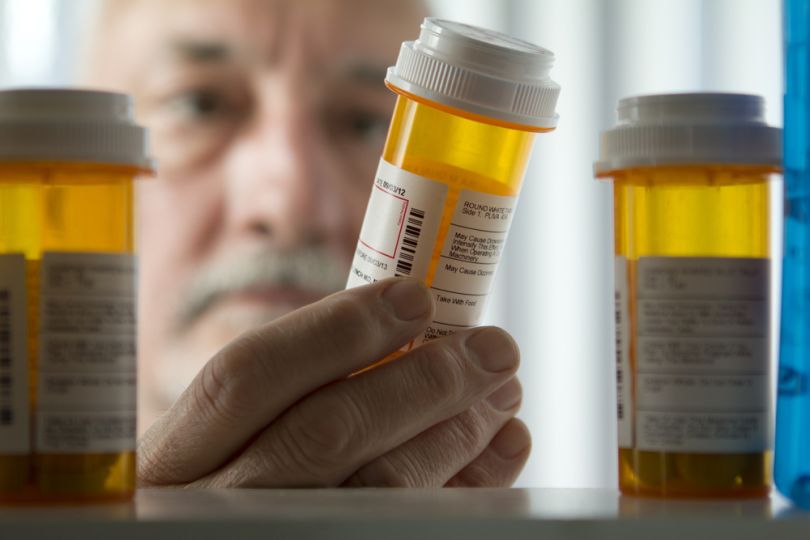
BLOCKPHARMA
Industry: Blockchain, Pharmaceuticals, Supply Chain
Location: Paris, France
What they do: Blockpharma offers a solution to drug traceability and counterfeiting. By scanning the supply chain and verifying all points of shipment, the company’s app lets patients know if they are taking falsified medicines With the help of a blockchain-based SCM system, Blockpharma weeds out the 15% of all medicines in the world that are fake.
Blockchain application: Through its app, the company’s blockchain-based system can help prevent patients from taking counterfeit medicines.

TIERION
Industry: Saas, Blockchain
Location: Mountain View, California
What they do: Tierion’s blockchain audits documents, records and medicines to keep a clear history of possession. The company uses timestamps and credentials to maintain proof of ownership throughout a medical supply chain.
Blockchain application: The company uses blockchain to maintain a clear possession history within medical supply chains.
Real-life impact: Tierion recently proposed a “multi-network coin” that could make Bitcoin more versatile and applicable.
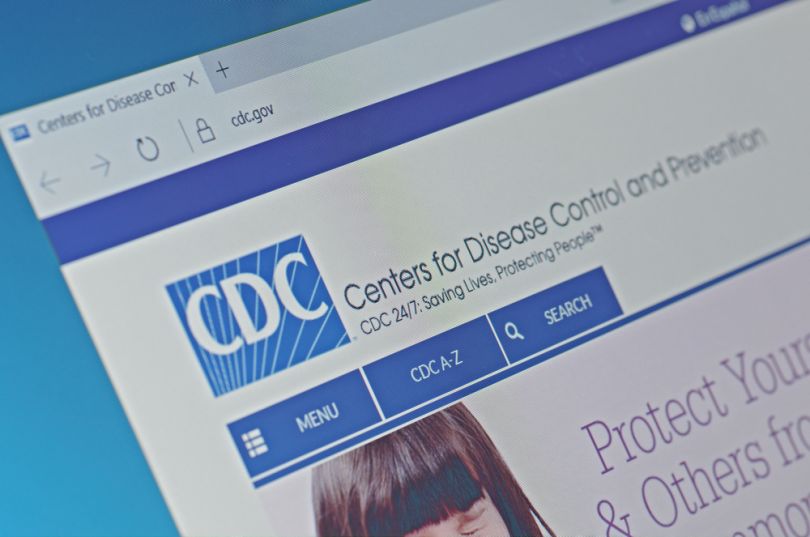
CENTERS FOR DISEASE CONTROL AND PREVENTION (CDC)
Industry: Government Agency, Healthcare, Security
Location: Atlanta, Georgia
What they do: The Centers for Disease Control and Prevention is looking into blockchain to monitor diseases in a supply chain-like manner. The U.S. Government agency says blockchain’s timestamps, peer-to-peer health reporting and data processing capabilities can help report disease outbreak in real-time. By studying the trail of reported outbreaks, scientists can find the origin of a disease and patterns that help suppress disease. The CDC might also employ blockchain to track the opioid epidemic.
Blockchain application: The CDC uses blockchain to monitor diseases and report outbreaks in real time.
Real-life impact: IBM is working with the CDC to develop a blockchain-based surveillance system so public health agencies can more effectively gather data about patients and prescriptions.

Breakthroughs in Genomics
The potential of genomics to improve the future of human health, once a dream, is now a scientific and financial reality. In 2001, it cost $1 billion to process a human genome. Today it costs about $1,000, and companies like 23andMe and Ancestry.com are bringing DNA tests that unlock clues to our health and past to millions of homes.
Blockchain is a perfect fit for this growing industry as it can safely house billions of genetic data points. It’s even become a marketplace where people can sell their encrypted genetic information to create a wider database, giving scientists access to valuable data faster than ever before.
These three companies are using blockchain to further our understanding of the most basic building blocks of human life.
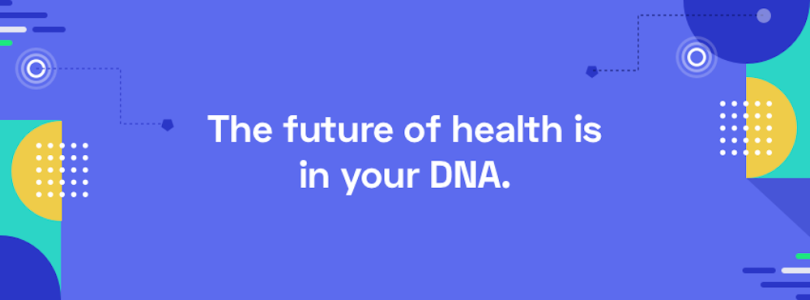
NEBULA GENOMICS
Industry: Biotechnology, Genetics
Location: Boston, Massachusetts
What they do: Nebula Genomics is using distributed ledger technology to eliminate unnecessary spending and middlemen in the genetic studying process. Pharmaceutical and biotech companies spend billions of dollars each year acquiring genetic data from third parties. Nebula Genomics is helping to build a giant genetic database by eliminating expensive middlemen and incentivizing users to safely sell their encrypted genetic data.
Blockchain application: The company uses blockchain to streamline the study of genetics and lower costs.
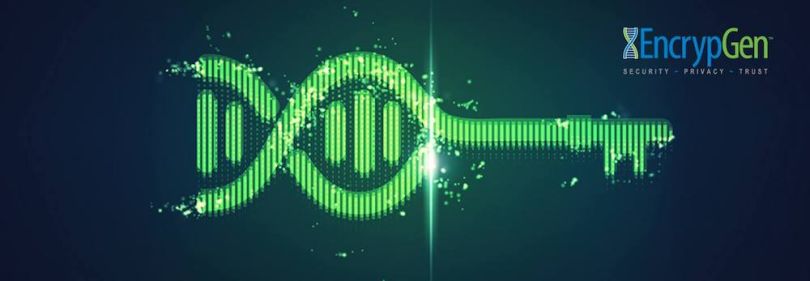
ENCRYPGEN
Industry: Blockchain, Data-Sharing
Location: Coral Springs, Florida
What they do: The EncrypGen Gene-Chain is a blockchain-backed platform that facilitates the searching, sharing, storage, buying and selling of genetic information. The company protects its users’ privacy by allowing only other members to purchase the genetic information using safe, traceable DNA tokens. Member companies can use the genetic information to build upon their genetic knowledge and advance the industry.
Blockchain application: The company’s blockchain platform makes it easier to search for, share, store and buy genetic information.
Real-life impact: EncrypGen plans to expand its user profile to include self-reported medical and behavioral data. According to company co-founder and CEO Dr. David Koepsell, it’s also working on integrating a blockchain payment and auditing platform as well as forming partnerships with testing companies, analytics software developers and others.
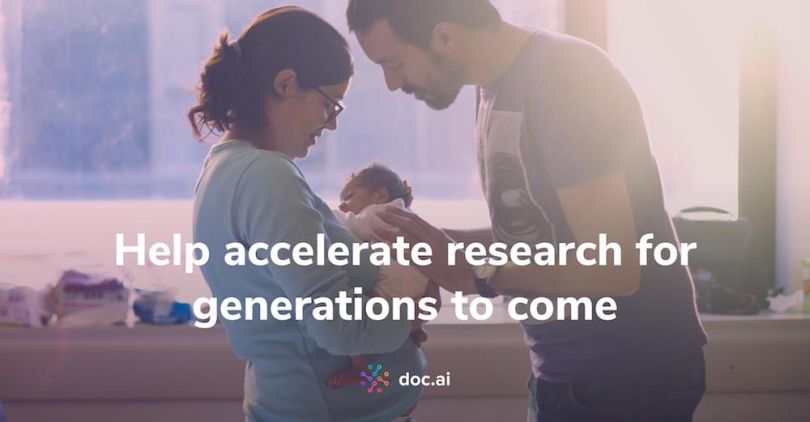
DOC.AI
Industry: AI, Blockchain, Medical, Software
Location: Palo Alto, California
What they do: Doc.ai uses machine intelligence, like AI, to decentralize medicine on the blockchain. Users can opt into the company’s platform to share their medical and genomic data with a community of scientists that use the data for predictive modeling. doc.ai saves no patient data. Once information is uploaded, encrypted on a blockchain and used in a trial, the data is wiped out in order to ensure security and privacy.
Blockchain application: The company’s employs machine intelligence (like AI) to decentralize medical data on the blockchain.
Real-life impact: The company recently partnered with health insurer Anthem to study the use of artificial intelligence in predicting the occurrence of allergic reactions.
Source: https://builtin.com/blockchain/blockchain-healthcare-applications-companies



